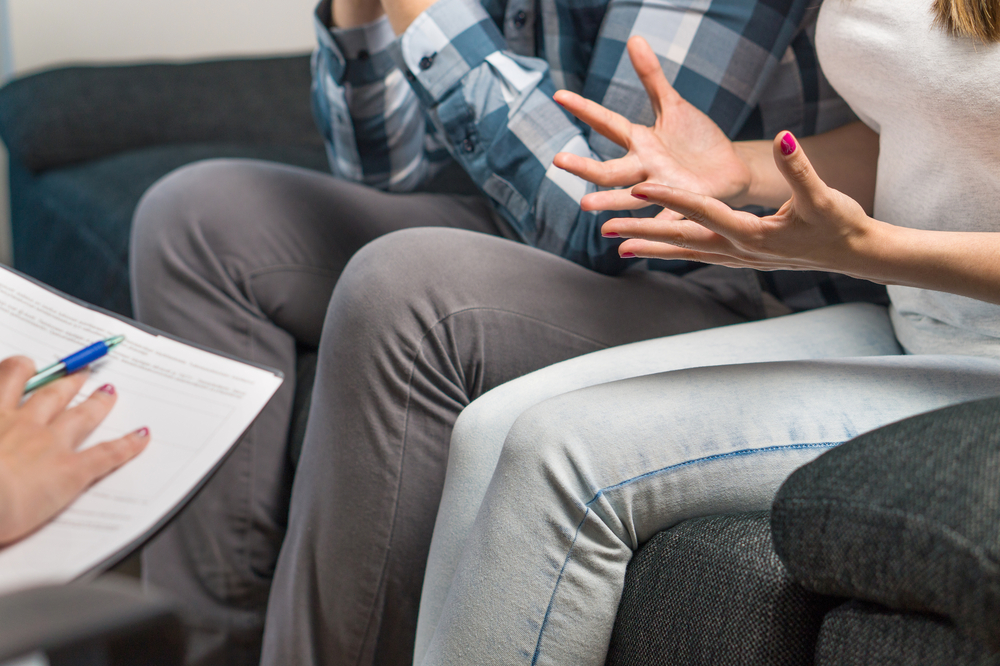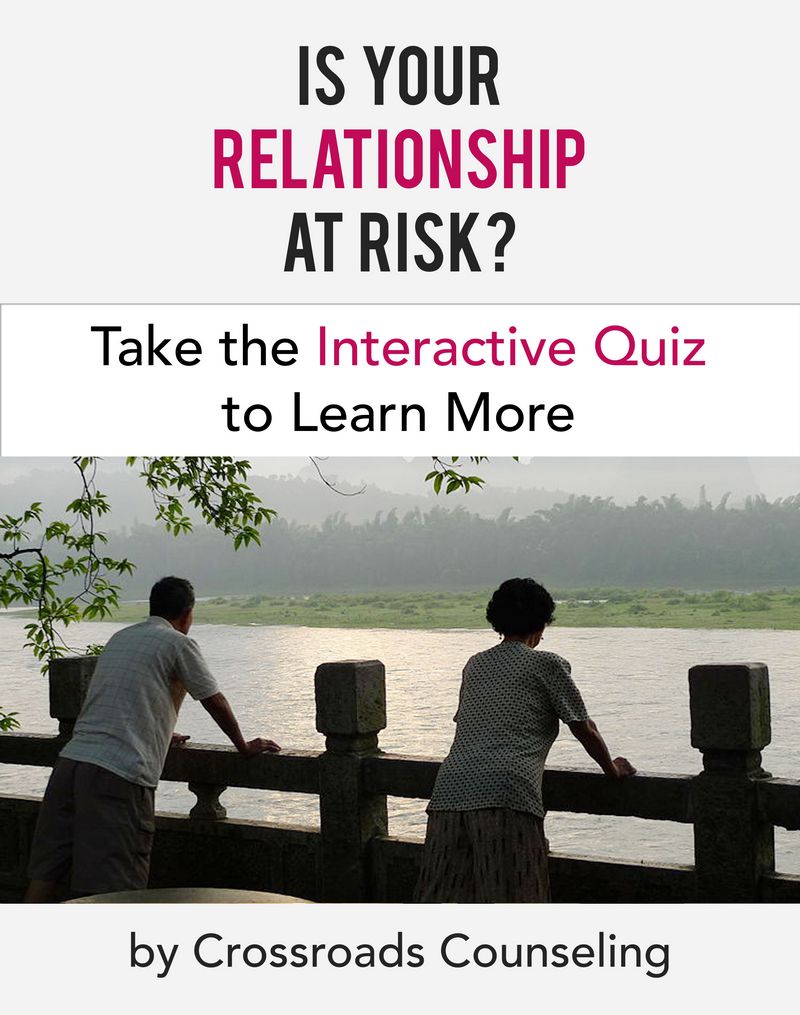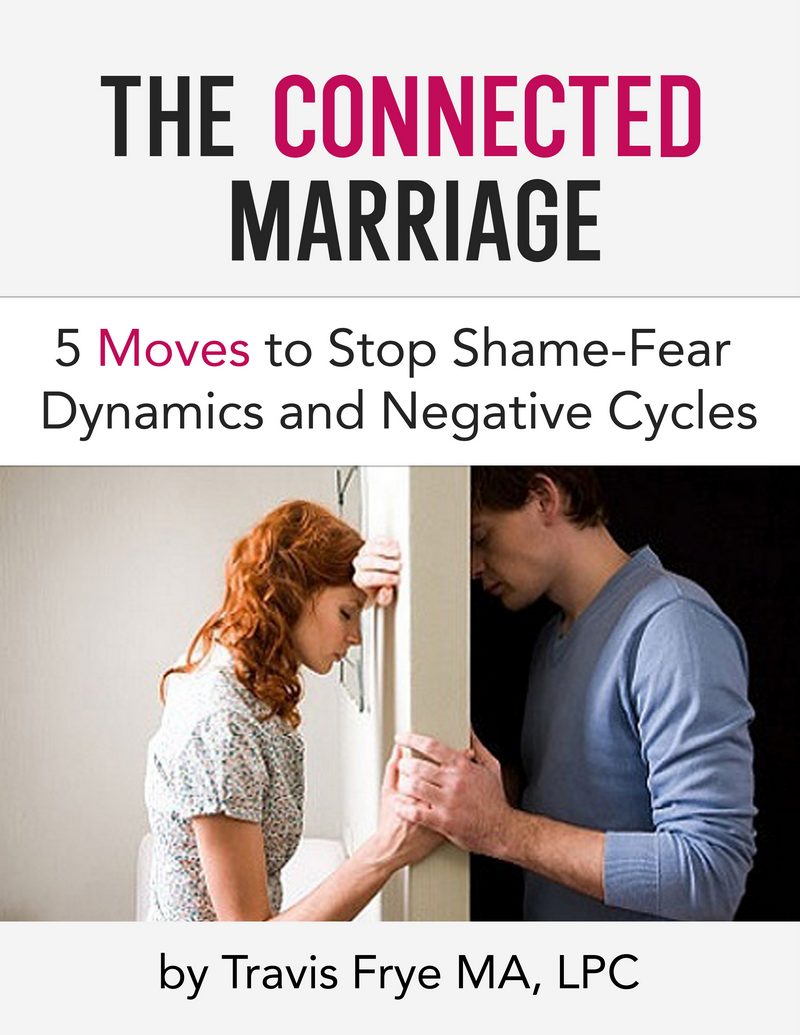You and your partner disagree almost every day. Instead of taking a breath, walking away, and coming back to the conversation when you’re both cooled down, you opt to fight it out.
You’re not physically fighting, but the fighting, bickering, arguing, yelling, and screaming aren’t much better.
You both finally agreed that couples therapy may be a good next step to help you work through any disagreements or resentments. Although you believe that therapy is a good next step, you’d be lying if you said you weren’t nervous, worried, or anxious about it.
You don’t really enjoy fighting with your partner. In fact, you’re a little embarrassed by it. The thought of fighting with your partner in front of another person is making matters worse. Worrying about fighting during couples therapy is completely normal
Let’s learn more about why fighting in therapy is actually completely normal and even good!
Can You Fight During Therapy?
Of course, you can fight during therapy. In fact, it’s almost encouraged! No relationship is perfect. You won’t agree or be on the same page with your partner on every little thing, and that’s okay! You are each two different people with your own beliefs, wants, needs, personalities, and past history. Fighting in a relationship is completely normal. It’s actually one of the ways that you can learn more about your partner, as well as see their side towards certain things. Fighting during couples therapy also helps your couples therapist to observe your patterns of interaction. Your couples therapist will not allow the fighting to go on unabated. Your couples therapist will help you and your partner to learn how to move past the stuck places in the argument and help each person learn how to identify the root issue(s). Your couples therapist will also help you and your partner learn how to resolve the conflict by communicating your most vulnerable emotions and the unmet relational needs.
Why Fighting in Therapy is Normal
When you fight with your partner during couples therapy, it actually can help propel your relationship even further. It gives your couples therapist a first look at how you interact with one another. Your couples therapist will use their observations as a way to help you better manage any conflict in the future. These are just a few of the tips your therapists may share with you if you and your partner fight during a session.
Don’t Fight to Win
There’s a difference between fair fighting and fighting to win. You and your partner are on the same team, so you shouldn’t be fighting to win an argument. Make sure all of your conversations, the positive and negative ones are working towards finding common ground. No partner should feel like they’re giving more while the other is receiving more. The goal of an argument is to meet one another in the middle.
Stay Open and Receptive
Fighting allows you to express your opinions, beliefs, thoughts, ideas, wants, and needs. It allows your partner a deeper inside look into how you’re thinking and feeling. With proper explanation, they’re able to better understand your point of view. Make sure you and your partner are finding a balance throughout all of your conversations to make sure each person has a chance to speak and listen.
Fighting As a Sign of Care
Fighting can also be a sign of a person’s love and care for the relationship and for their partner. In other words, when you are passionate about someone or something you will feel anger and you will fight. Researcher Jak Panksepp talks about primal panic which refers to the fear all humans experience when they are faced with rejection and/or abandonment in their relationship with their partner. The fight response is part of primal panic and it is often a sign that the person wants or needs reassurance/comfort or is fighting to convey to their partner they matter.
Actively Listen
Another way to make sure you better understand your partner is to actively listen. Make sure you put away all distractions. That means turning off the TV or putting your phone away. Give your partner your full, undivided attention. Lean forward, make eye contact, and ask questions if needed to clarify things. Let your partner know that you see and hear them. Repeating what you’re hearing will show your partner that you care, are listening to them, and that you’re understanding where they’re coming from.
Next Steps
There are a few things that are off-limits during a therapy session, but fighting isn’t one of them. There’s a good chance your couples therapist has seen it all. You won’t be the first couple attending therapy that fights during a session. In fact, if you showed up to the session saying you didn’t fight at all, that may be a bigger concern to your therapist. Call us at 623-680-3486,text 623-688-5115, or email info@crossroadsfcc.com. You can ask all the questions you have and see if couples therapy at Crossroads is the right fit for you and your partner. You can also learn more about Emotionally Focused Couples Therapy (EFT) as well. Our offices are conveniently located throughout the Valley of the Sun including Phoenix, Anthem, and Scottsdale. We would be honored to support you in better understanding your relationship. You can start your therapy journey by following these simple steps:
- Contact Crossroads Counseling
- Meet with a couples therapist in Scottsdale, Phoenix, or Arizona online
- Begin addressing your relationship issues






